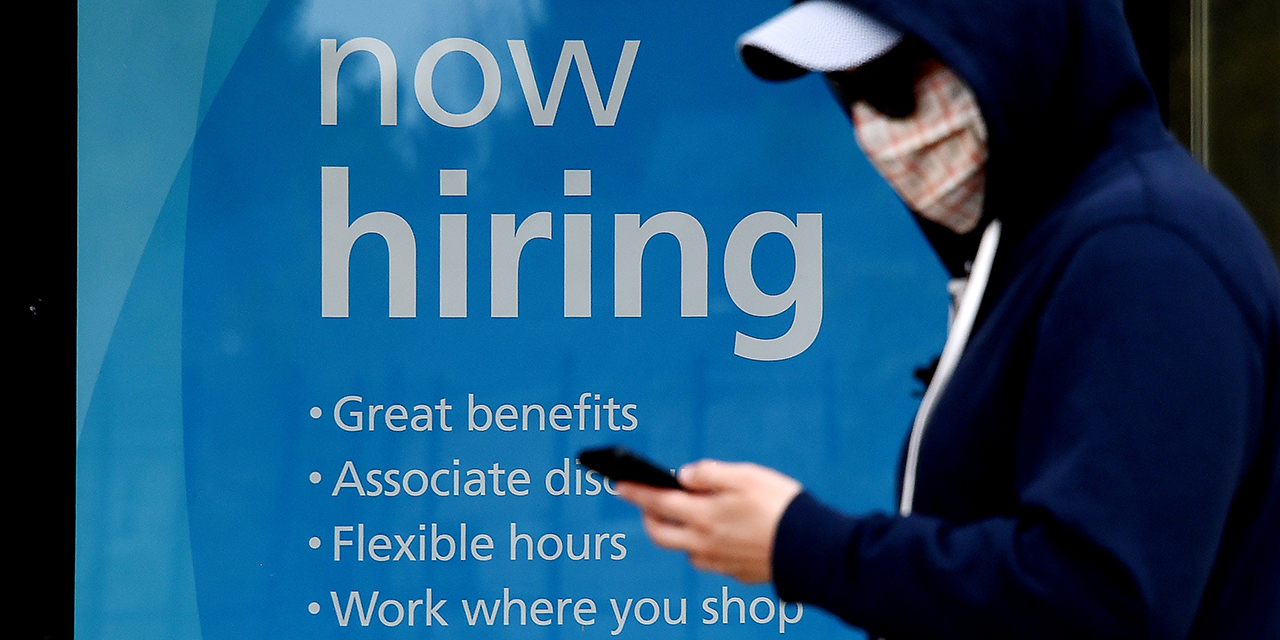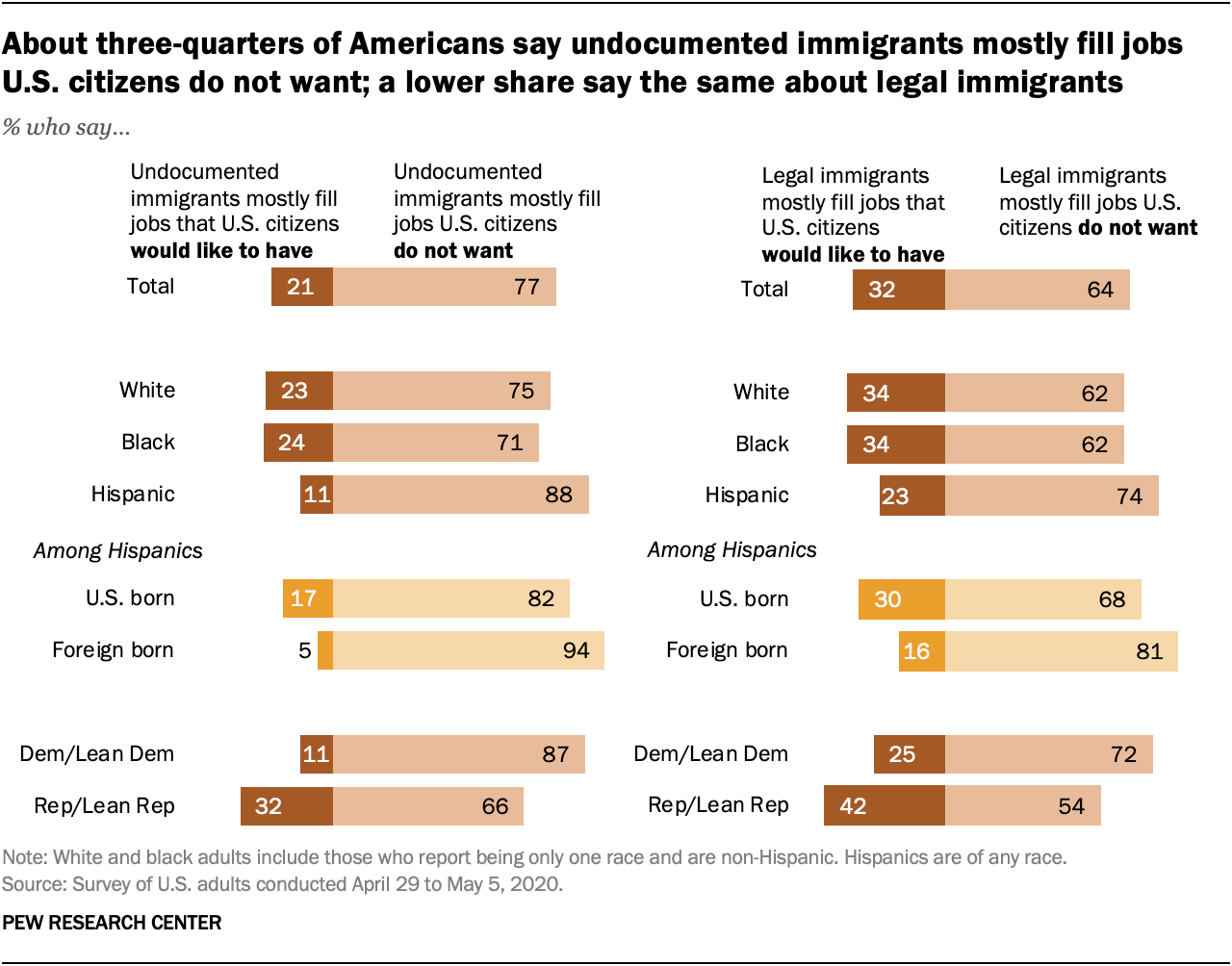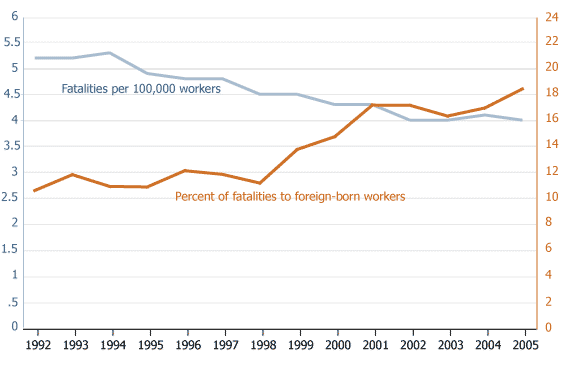Finding jobs in the US as a foreigner can be challenging. The process involves understanding visas, job markets, and networking.
The United States offers numerous opportunities for skilled professionals from around the world. Many foreigners dream of starting their careers in the US. To succeed, it’s crucial to know the right steps and resources. This guide will help you navigate the complex job market, from visa options to job search strategies.
Discover how to build a strong resume, network effectively, and find employers who value international talent. By understanding these key aspects, you can boost your chances of landing a job in the US. Ready to explore the possibilities? Let’s dive into the essential steps for finding jobs in the US for foreigners.
You May Also Like:

VISA Options
Many foreigners dream of working in the US. Understanding visa options is crucial. There are several types, each with specific requirements. This guide will help you navigate work visas, student visas, and the Green Card process. Here’s what you need to know.
Work VISAS
Work visas are essential for many foreigners seeking jobs in the US. There are different types of work visas, each suited to various job roles and qualifications. The most common ones are:
- H-1B Visa: For professionals in specialized fields such as IT, engineering, and finance. Requires a job offer from a US employer.
- L-1 Visa: For employees of international companies transferring to a US office.
- O-1 Visa: For individuals with extraordinary abilities in arts, science, education, or athletics.
- E-2 Visa: For investors or entrepreneurs who invest a significant amount of capital in a US business.
Each visa has specific criteria and application processes. The H-1B visa, for example, requires a sponsor. Employers must file a petition on behalf of the employee. This process includes proving the job role and salary meet US standards.
Student VISAS
Student visas allow foreigners to study in the US. There are two main types of student visas:
- F-1 Visa: For academic students attending a university or college, high school, private elementary school, or other academic institutions.
- M-1 Visa: For vocational students attending non-academic or vocational schools.
To apply, students must first be accepted by a US school. The school provides a Form I-20, which is necessary for the visa application. The application process involves paying a fee, completing Form DS-160, and attending an interview at a US embassy or consulate.
Student visas also allow for limited work opportunities. F-1 visa holders can work on campus up to 20 hours per week. After completing their studies, they may be eligible for Optional Practical Training (OPT), allowing them to gain work experience in their field of study.
Green Card
The Green Card allows foreigners to live and work permanently in the US. There are several ways to obtain a Green Card:
- Family-Based: For immediate relatives of US citizens or permanent residents.
- Employment-Based: For workers with job offers from US employers, including those with extraordinary abilities.
- Diversity Visa Lottery: For individuals from countries with low immigration rates to the US.
The application process for a Green Card can be complex. It usually starts with a petition filed by a sponsor, such as an employer or family member. After approval, the applicant must complete several forms and attend an interview. Medical examinations and background checks are also required.
Once granted, a Green Card holder enjoys many benefits. They can work for any employer, travel freely, and apply for US citizenship after a certain period.
Top Industries
The United States offers many job opportunities for foreigners. The country has a diverse and robust economy, making it attractive for job seekers. Some industries are particularly welcoming to international talent. This blog post explores the top industries where foreigners can find jobs in the US. These industries include Technology, Healthcare, and Education. Each of these sectors has a high demand for skilled workers.
Technology
The technology industry is one of the fastest-growing sectors in the US. It offers many opportunities for foreigners. The demand for tech professionals is high. Companies need skilled workers for roles such as software developers, data analysts, and system administrators. Many tech companies sponsor visas for skilled foreign workers.
Here are some key points about the tech industry:
- High demand for software developers and data scientists.
- Many companies sponsor H-1B visas.
- Jobs available in cities like San Francisco, Seattle, and Austin.
Top companies in the tech industry include:
| Company | Location |
|---|---|
| Mountain View, CA | |
| Amazon | Seattle, WA |
| Menlo Park, CA |
Healthcare
The healthcare industry is another sector with many job opportunities for foreigners. The US healthcare system is one of the largest in the world. It requires a wide range of professionals. Jobs available include doctors, nurses, and medical technicians. Healthcare jobs are available in hospitals, clinics, and private practices.
Here are some key points about the healthcare industry:
- High demand for doctors and nurses.
- Opportunities for medical researchers and technicians.
- Many healthcare facilities sponsor work visas.
Top hospitals in the healthcare industry include:
| Hospital | Location |
|---|---|
| Mayo Clinic | Rochester, MN |
| Cleveland Clinic | Cleveland, OH |
| Johns Hopkins Hospital | Baltimore, MD |
Education
The education sector in the US also offers opportunities for foreigners. There is a need for qualified teachers and professors. Jobs are available in public schools, private schools, and universities. Many institutions value the diverse perspectives that foreign educators bring.
Here are some key points about the education industry:
- High demand for qualified teachers and professors.
- Opportunities in public and private schools.
- Many universities sponsor J-1 visas for scholars.
Top universities in the education industry include:
| University | Location |
|---|---|
| Harvard University | Cambridge, MA |
| Stanford University | Stanford, CA |
| MIT | Cambridge, MA |
Job Search Strategies
Finding a job in the US as a foreigner can be challenging. But with the right strategies, it becomes easier. One needs to be well-prepared and aware of the different methods available. Among the many strategies, networking, online job boards, and recruitment agencies stand out. These methods can help you connect with potential employers and find job opportunities.
Networking
Networking is a crucial part of the job search process. It allows you to connect with people in your industry. These connections can provide valuable insights and job leads.
Here are some effective networking strategies:
- Attend industry events and conferences.
- Join professional associations related to your field.
- Participate in local meetups and networking groups.
- Use social media platforms like LinkedIn to connect with professionals.
Building a strong network can open doors to job opportunities. Many jobs are not advertised publicly. Instead, they are filled through personal connections. So, having a strong network can give you access to these hidden opportunities.
Additionally, networking helps you learn about the work culture in the US. You can gain insights into what employers are looking for. This can help you tailor your job applications to meet their expectations.
Online Job Boards
Online job boards are another effective way to find jobs in the US. These platforms list thousands of job openings. They allow you to search for jobs based on your skills and preferences.
Here are some popular online job boards:
- Indeed
- Glassdoor
- Monster
- CareerBuilder
Using online job boards is simple. You can create a profile, upload your resume, and start applying for jobs. Many job boards also offer helpful resources. These include resume-building tools and interview tips. They can help you improve your job application process.
One important tip is to regularly check these job boards. New job postings appear every day. By staying active, you can quickly apply to new opportunities. This increases your chances of getting noticed by employers.
Recruitment Agencies
Recruitment agencies can be very helpful in your job search. They act as intermediaries between job seekers and employers. These agencies have access to a wide range of job openings.
Benefits of using recruitment agencies:
- They help you find jobs that match your skills and experience.
- They provide guidance on improving your resume and interview skills.
- They have connections with many employers, increasing your job opportunities.
- They can offer temporary or contract positions, which may lead to permanent jobs.
Working with a recruitment agency can save you time. They do the job search for you. All you need to do is provide your details and preferences. The agency will match you with suitable job openings.
Some well-known recruitment agencies in the US include:
- Robert Half
- Kelly Services
- Manpower
- Randstad
- Adecco
Choosing the right agency is important. Look for agencies that specialize in your industry. This ensures they have the right connections and expertise to help you find a job.
Resume Tips
Finding jobs in the US can be a challenge for foreigners. The job market is competitive, and having a good resume is crucial. This post will share important resume tips to help you stand out. Follow these tips to improve your chances of getting hired.
Formatting
Proper resume formatting is essential. It makes your resume easy to read and professional. Here are some key points:
- Use a clean, simple design.
- Choose a professional font like Arial or Times New Roman.
- Font size should be 10-12 points.
- Keep your resume to one page if possible.
Use clear headings for each section. Here are some examples:
- Contact Information
- Objective
- Work Experience
- Education
- Skills
Ensure there is enough white space to make it easy to read. Avoid using colors or images. They can be distracting to employers.
Tailoring for US Jobs
Resumes should be tailored for each job application. This shows employers you are serious about the position. Here are some tips:
- Read the job description carefully.
- Highlight keywords from the job posting.
- Include these keywords in your resume.
Match your experience with the job requirements. For example:
- If the job requires project management, include your project management experience.
- If the job requires technical skills, list your technical skills.
Employers want to see that you have the skills they need. Make sure your resume shows this clearly.
Highlighting Skills
Skills are an important part of your resume. They show what you can do. Here are some tips:
- Include a skills section in your resume.
- List your skills in bullet points.
- Use specific skills, not general ones.
For example, instead of saying “good with computers,” say “proficient in Microsoft Office and Excel.” Here is a table for better understanding:
| General Skill | Specific Skill |
|---|---|
| Good with computers | Proficient in Microsoft Office and Excel |
| Team player | Experienced in collaborative projects |
Highlighting your skills clearly helps employers see your value. Make sure to include both hard and soft skills.
Interview Preparation
Searching for jobs in the US as a foreigner can be challenging. Preparing for interviews is a key step to succeed. Understanding what to expect can make the process smoother. This guide covers common questions, cultural expectations, and follow-up etiquette.
You May Also Like:

Common Questions
Interviews often include a mix of questions. Being ready for these can help you shine. Here are some typical questions:
- Tell me about yourself. This is a chance to highlight your background and skills.
- Why do you want to work here? Show your knowledge of the company and your passion for the role.
- What are your strengths and weaknesses? Be honest but strategic in your answers.
- Describe a challenging situation and how you handled it. Use this to demonstrate problem-solving skills.
- Where do you see yourself in five years? This helps employers understand your career goals.
Practice your answers to these questions. This will help you feel more confident during the interview. Remember, clear and concise answers are best.
Cultural Expectations
Understanding cultural norms in the US is important. It can affect how you are perceived during the interview.
Here are some key points:
- Punctuality is highly valued. Arrive at least 10 minutes early.
- Dress Code matters. Business attire is usually expected.
- Body Language speaks volumes. Maintain eye contact and offer a firm handshake.
- Communication Style should be clear and direct. Avoid being too modest or too boastful.
Adapting to these expectations can make a positive impression. It shows that you respect and understand the local culture.
Follow-up Etiquette
After an interview, follow-up is crucial. It shows your interest and professionalism.
Here are steps to follow:
- Send a Thank-You Email within 24 hours. Mention something specific from the interview.
- Keep it Brief. A few sentences expressing gratitude and interest is enough.
- Be Patient. Wait at least a week before following up again if you haven’t heard back.
- Stay Polite. Even if you don’t get the job, thank them for the opportunity.
Proper follow-up can leave a lasting impression. It may even open doors for future opportunities.
Workplace Culture
Finding a job in the US can be a rewarding experience for foreigners. The US job market is diverse and offers many opportunities. But understanding the workplace culture is key. This helps in adapting and succeeding in the new environment. Here, we will discuss important aspects of workplace culture in the US.
Communication Styles
In the US, communication is often direct and to the point. People appreciate clear and concise messages. Being straightforward is valued. Here are some key points about communication styles in the US:
- Directness: Say what you mean without beating around the bush.
- Clarity: Make sure your message is easy to understand.
- Professionalism: Maintain a professional tone, especially in emails and meetings.
Meetings are common in US workplaces. They are usually structured and have clear agendas. Employees are expected to participate actively. If you have an idea or feedback, share it. This is encouraged and appreciated.
Emails are another key communication tool. They should be brief and to the point. Start with a polite greeting, state your purpose, and end with a courteous closing.
Diversity and Inclusion
The US is known for its diverse workforce. Companies strive to include people from different backgrounds. Diversity and inclusion are not just buzzwords. They are important values in the workplace. Here are some aspects of diversity and inclusion in the US:
- Equal Opportunity: Employers focus on hiring based on skills and qualifications.
- Respect for Differences: Cultural, racial, and gender differences are respected.
- Inclusion Programs: Many companies have programs to support diversity and inclusion.
Workplaces often celebrate different cultures through events and activities. This helps in building a sense of community. Employees are encouraged to share their unique perspectives. This enriches the workplace environment.
Being part of a diverse team can be rewarding. It offers a chance to learn from others and grow both personally and professionally.
Work-Life Balance
Maintaining a healthy work-life balance is important in the US. Many companies recognize this and offer various benefits. Here are some ways work-life balance is supported:
- Flexible Work Hours: Some jobs offer flexible schedules to accommodate personal needs.
- Remote Work: Many companies allow employees to work from home.
- Paid Time Off: Employees receive paid vacation days and sick leave.
Companies also provide resources for employee wellness. This includes access to gyms, mental health support, and wellness programs. Encouraging a balance between work and personal life helps in reducing stress. It also increases productivity and job satisfaction.
Family-friendly policies are also common. These include parental leave, childcare support, and family health insurance. Such policies help employees take care of their families while managing their work responsibilities.
Settling in
Finding a job in the US can be a big step for foreigners. Settling into a new country involves many aspects. One must consider housing, healthcare, and community resources. This guide helps ease the transition.
Housing
Securing a place to live is a priority. Options vary based on budget and needs. Renting is common for newcomers. Here are some key points:
- Apartments are readily available in cities.
- Suburban homes offer more space and are family-friendly.
- Shared housing can be cost-effective.
It’s important to research neighborhoods. Safety and proximity to work matter. Websites like Zillow and Craigslist are useful for finding rentals. Understanding lease terms is crucial. Most leases require a security deposit and first month’s rent upfront. Reading reviews and talking to current tenants can provide insights.
Healthcare Access
Accessing healthcare in the US can be complex. It’s essential to have health insurance. Most employers offer health plans. If not, private insurance is an option. Here are some important points:
| Insurance Type | Description |
|---|---|
| Employer-Sponsored | Often covers a large part of the cost. |
| Private Insurance | Purchased individually, often more expensive. |
| Government Programs | Available for low-income families and seniors. |
Finding a doctor is the next step. Websites like Zocdoc help locate doctors and schedule appointments. Understanding the costs and coverage of your plan is vital. Emergency care is available at hospitals but can be costly without insurance.
Community Resources
Connecting with the local community aids in settling. Many resources are available for newcomers. Here are some to consider:
- Local libraries often offer free events and language classes.
- Community centers provide social activities and support groups.
- Immigrant organizations can assist with legal advice and job placements.
Building a network helps in feeling at home. Joining clubs or groups with similar interests can be beneficial. Volunteering is another way to meet people and learn about the community. Many cities have cultural festivals and events that celebrate diversity. These events are great for meeting fellow foreigners and locals alike.

Conclusion
Finding a job in the US as a foreigner can be challenging. But with the right approach, it’s possible. Research the job market and tailor your resume. Utilize networking opportunities and seek out professional advice. Stay persistent and positive throughout the process.
Many have succeeded before you. You can too. Remember, every effort brings you closer to your goal. Keep learning and adapting. Your dream job is out there. Keep searching and don’t give up. Your hard work will pay off.
